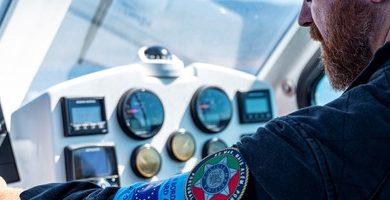The Spanish Civil Guard intervenes more than 190 kilos of eels in the Port of Algeciras
The Spanish Civil Guard, has proceeded to the arrest of 2 people and the seizure of 190 kilos of elvers in the Port of Algeciras (aguilla anguilla).The events occurred when the Civil Guard of the Fiscal Section of the Port of Algeciras (cabotage), stopped a vehicle from Tangier that raised the suspicions of the agents. When inspecting the vehicle, they were able to observe how in the cargo area of the van there was a large number of isothermal boxes where these specimens were transported.
Once the merchandise was verified by the Nature Protection Service (SEPRONA) and by the Foreign Health Service of the Port of Algeciras, said merchandise was transferred to secure facilities so that, in collaboration with the General Directorate of Forest Policy and Biodiversity of the Ministry of Sustainability, Environment and Blue Economy, be reintroduced to its natural environment.It should be noted that the intervention carried out represents the largest seizure of this specimen in a Port of the Autonomous Community of Andalusia, yielding a total weight of 192 kg in 32 boxes of porexpam, with a market value of approximately 250,000 euros.
European eel problemDue to the fact that since 2010 all imports and exports of live or processed European eels to and from the EU have been prohibited, since it was not believed possible to guarantee a non-detrimental trade for the species, a problem arises for Asian countries to get Spanish eels (or French, Irish or English) outside the European Union, which is why criminal organizations mainly establish in Spain which make purchases through Spanish intermediaries, to smuggle them out through the different ports and airports of Spain.
Their destination is fish farms in China, where they will fatten them for a year until they become eels of about 70 centimeters, to then sell them on the Chinese market and, above all, export them to Japan, where eel is a national dish.The eels are transported in perfectly sealed porexpan boxes which contain trays prepared for this purpose to prevent the specimens from coming out of the packaging during transport. Then the passengers, either on foot or in vehicles, transport live eels or check the suitcases as their personal luggage at the airport or port, waiting in Asian countries for a contact to deliver the merchandise that will supply a new generation of fingerlings to their aquaculture farms. , where they are specialized in captive breeding of the European eel.




